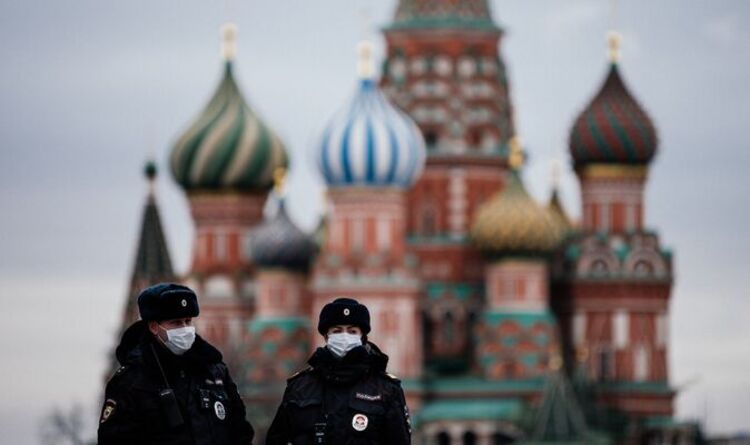Russia: Kremlin 'aware' it's losing public support says expert
We use your sign-up to provide content in ways you’ve consented to and to improve our understanding of you. This may include adverts from us and 3rd parties based on our understanding. You can unsubscribe at any time. More info
Vitaly Shevchenko, the Russian Editor of BBC Monitoring has been interviewed on BBC Breakfast on the crackdown the Kremlin has launched on independent media in Russia. Mr Shevchenko said that Russia has taken steps to control what Russians see in the media, about the war in Ukraine because the Government is “losing the battle for hearts and minds.”
Mr Shevchenko told BBC Breakfast: “Russian parliament this morning passed a law which says if you spread false information, false from the point of view of the Kremlin, about Russian involvement in Ukraine, you’re facing 15 years in jail.
“So that has already led to devastating results even more devastating results for the Russian media.
He added: “This tells me that the Kremlin is aware that it’s losing the battle for the hearts and minds of people not just across the globe, but in Russia itself.
“And it’s trying to make Russians stop hearing seeing all the horrific pictures were getting from Ukraine of civilians being targeted and infrastructure civilian infrastructure being destroyed.”
JUST IN: READ MORE ON OUR RUSSIA-UKRAINE WAR LIVE BLOG


Russia’s communications watchdog said on Friday it had blocked the websites of the BBC, Voice of America, Radio Free Europe/Radio Liberty, Deutsche Welle, and other media outlets.
“Access has been restricted to a host of information resources owned by foreigners,” the watchdog, known as Roskomnadzor, said in a statement.
“The grounds for restricting access to these information resources on the territory of the Russian Federation was their deliberate and systematic circulation of materials containing false information.”
The BBC said it would not be deterred by the Russian curbs.
Ukraine: Expert explains what cluster munitions are
“Access to accurate, independent information is a fundamental human right which should not be denied to the people of Russia, millions of whom rely on BBC News every week,” it said.
“We will continue our efforts to make BBC News available in Russia, and across the rest of the world.”
The European Union this week banned Russian state-controlled media outlets RT and Sputnik. Facebook owner Meta, Alphabet Inc’s Google, YouTube, and TikTok are already blocking access to RT and Sputnik in the EU.
Twitter has said it would comply with the EU ban.
DON’T MISS:
Nicola Sturgeon savaged for trying to ‘weaken’ NATO [REACTION]
Priti Patel blasts back at SNP jibing over Ukraine refugees [WATCH]
Nicola Sturgeon faces furious battle over far-reaching new rules [INSIGHT]

Russian officials have repeatedly said that false information has been intentionally spread by Russia’s enemies such as the United States and its Western European allies in an attempt to sow discord among the Russian people.
Russian lawmakers passed amendments to the criminal code making the spread of “fake” information a criminal offence punishable with fines or jail terms.
Lawmakers also imposed fines for public calls for sanctions against Russia.
“If the fakes lead to serious consequences then imprisonment of up to 15 years threatens,” the lower house of parliament, known as the Duma in Russian, said in a statement.
Source: Read Full Article
